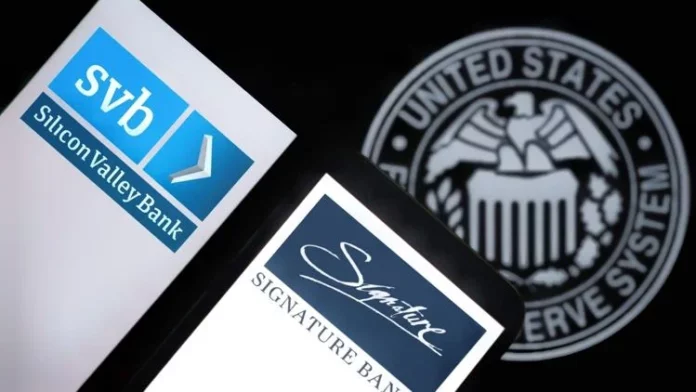
Bipartisan legislation introduced by Republican North Carolina Sen. Thom Tillis aims to increase transparency in the Federal Reserve System as lawmakers probe recent bank failures.
Tillis partnered with Democratic Massachusetts Sen. Elizabeth Warren to introduce the Financial Regulators Transparency Act. If enacted, the legislation would subject regional Federal Reserve banks to the Freedom of Information Act and ensure their responsiveness to congressional and public information requests.
Numerous lawmakers have raised concerns about how top bank regulators handled the collapse of California-based Silicon Valley Bank, noting that Federal Reserve supervisors first raised questions about the bank’s risky practices in 2021, when they warned bank management about the issues.
“Congress must have a clear understanding of what regulatory and supervisory failures occurred to allow the collapse of both Silicon Valley Bank and Signature Bank,” Tillis said. “It is clear to me the Fed made mistakes, and greater transparency is needed to determine what went wrong so we can ensure that it doesn’t happen again. I’m proud to introduce this bipartisan legislation, which advances Federal Reserve transparency and accountability, while still maintaining crucial Fed independence over monetary policy decisions.”
The Financial Regulators Transparency Act would align the Fed with other large agencies by making its inspector general a presidential appointee, while also prohibiting all financial regulatory agencies from denying congressional requests for ethics-related information.
The bill would also provide certain members of the Senate Committee on Banking, Housing, and Urban Affairs and House Financial Services Committee with the ability to request supervisory information from the Federal Reserve.
Only committee chairmen have the ability to obtain ethics-related information from financial regulators, who can cite common law privilege to withhold information from other members of Congress.
In addition to expanding the availability of ethics-related information, the bill would require Fed regional banks to prioritize FOIA requests from members of Congress, and prevent the banks from charging fees to process a request.
Other changes would allow members of Congress to file a federal lawsuit against Fed regional banks to petition the court to order them to produce any record improperly held.
“More and more lawmakers are troubled by the Fed’s key role in the recent bank failures, and this bipartisan bill underscores the momentum in Congress for enhanced transparency measures to hold Fed officials accountable for their actions,” Warren said. “After the largest ethics scandal in the history of the Federal Reserve System and now a failed multibillion-dollar bank under its watch, the Fed cannot ignore congressional oversight and stonewall the American people.”
Others in support of the bill include Sens. Mike Rounds, R-SD; Kyrsten Sinema, I-Ariz.; Bill Hagerty, R-Tenn.; Richard Blumenthal, D-Conn.; Cynthia Lummis, R-Wyo.; Ted Cruz, R-Texas; and J.D. Vance, R-Ohio.
Warren introduced the same legislation last year following a series of letters to Jerome Powell, chairman of the Board of Governors for the Federal Reserve System, regarding a “culture of corruption” at the Fed following revelations about stock trades by Fed governors and presidents.
Warren had repeatedly called on the Fed without success to publicly release information regarding several trading scandals during the pandemic.
Republished with the permission of The Center Square.













